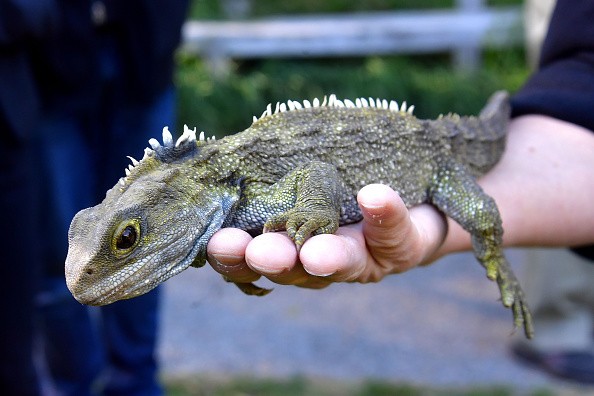Tuatara is an ancient, "living fossil" only found in New Zealand. This slow-moving reptile has left researchers amazed with its fast-moving sperm.

The Discovery
The scientists made this discovery in the process of making a new effort to collect and preserve the sperm of the safeguarded species that are at risk, they tried making sure it withstands new threats and a warming planet.
This creature is very ponderous, sometimes it takes 16 months to hatch, and about 35 years to fully grown with a size of about 0.5m. They can then live and procreate until they are over 100 years old - in 2008, a Tuatara whose name is Henry became the first-time father when he was 111-year-old.
But researchers said they were amazed to find out that the sperm of tuatara are the fastest swimmers out the one owned by species of its kind studied till today. They consider that speed may serve as a form of adaptation since they lack male copulatory organs (an organ used to deposit spermatozoa directly into the female reproductive tract).
Also Read: Animal De-Extinction Could Potentially Wipe Out Extant Species
Threatened Species
Tuatara does not possess penises like most of the other reptiles. Therefore, their sperm - in this case - have to move faster four times that of other reptiles so it can serve its purpose.
They are the only survivors of an ancient, order of reptiles that are lizard-like and also walked on the Earth together with dinosaurs about 225 millon years ago. Other species of Sphenodontia were widespread during the age of dinosaurs, but mostly went extinct about 60 million years ago, as per the Department of Conservation.
Tuatara was once common across New Zealand, but now they survive mainly on a scattering of off-shore islands where predators that were brought in have been eliminated.
Presently, the existence of this reptile is furtherly threatened by global heating. The temperature the eggs are exposed to determine the sex of Tuatara, warmer temperatures indicate more males hatch.
Scientists warn that the reptile will produce more and more male hatchlings as the planet warms, thereby changing sex ratios. If populations are filled with too many males, the species will become functionally extinct.

Frozen Sperm
Presently, New Zealand researchers are carrying out a new effort to make an "insurance policy" of frozen sperm, that could be used to replace populations affected by disease, rapidly skewed sex ratios, or introduced predators.
Sarah Lamar, one of the researchers and also a PhD candidate at Te Herenga Waka-Victoria University said: It's "insurance against disaster. It's never preferable to natural reproduction, but it is common among endangered species or species that are of conservation importance ... It's a really good way to back up that genetic diversity in case there were to be a disaster, and those important genes were to be lost."
Related Article : Rare Tuatara Hatching Caught on Camera [VIDEO]
For more news, updates about tuataras and similar topics don't forget to follow Nature World News!
© 2026 NatureWorldNews.com All rights reserved. Do not reproduce without permission.





